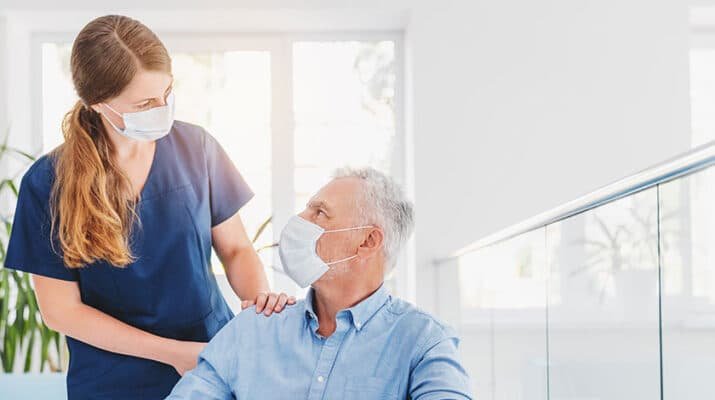By Deborah Jeanne Sergeant
Demanding on the body, mind and emotions, nursing is not an easy career path. As the pandemic has made a tough career even harder, leaders in nursing have been looking at ways to reduce burnout in the nursing field.
“Many nurses have their own way of coping with stress, whether it be relaxing in a hot tub, taking an extra-long shower or bath, watching funny movies to bring levity to their minds, holding their kids (both human and ‘fur babies’) or getting massages, either professional or from loved ones to work out all the kinks and knots to release tension,” said Jamie Volkenner. She has a bachelor’s in nursing and is a member of the Professional Nurses Association of Western New York. She works at Mercy Hospital of Buffalo.
She added that emotional support from colleagues and families make a big difference in fighting burnout. But reaching out for professional help may be stigmatized by some people. A therapist can provide unbiased professional feedback.
“Going into work with the right mindset, after what we consider is a good night’s sleep, seeing the friends and staff that actually want to be there and changing lives makes all the difference,” Volkenner said.
With adequate staffing, nurses can take enough time to care for themselves, both with breaks while on the clock, and sufficient days off.
Patricia Losito, who has a master’s in nursing and a doctor of education degree, believes that burnout ultimately goes back to staffing. She serves as executive dean nursing at Erie Community College.
“Burnout happens because you’re doing more with less,” Losito said. “The socio-economic issues with patients are complicated. You want to provide outstanding care and when they leave, you have to put in place things to ensure the safety, health and wellbeing of the patient and family. If you don’t have good staffing, you’re chasing yourself all day long.”
While she appreciates medical personnel’s collaborative efforts and the community’s support of healthcare providers, she said that the pandemic has been exhausting, as it has placed further strain on nurses by wearing extra personal protective equipment and providing additional emotional support to patients.
“Losing patients faster than they ever had has certainly taken an emotional toll on people,” Volkenner said. “We’re not out of it yet. We have yet to see what this is going to look like on the other end of it.”
Gale Klinshaw, master’s-trained nurse and UB Clinical Lab coordinator, recommends nurses regularly exercise and participate in mindfulness or meditation.
“Nurses can turn to the wrong things like eating or drinking too much and what they should do is provide more opportunities for relaxation,” Klinshaw said. “Mindfulness is my big thing. They should also try yoga or other activities they enjoy.”
She has found that nurses complaining of stress-induced physical symptoms like headache, gastrointestinal issues and insomnia find relief after practicing mindfulness after six weeks.
“I hope mindfulness won’t go away as a fad but that we incorporate it into everything we do,” Klinshaw said. “It’s like the oxygen mask on airplanes, in that you have to put yours on before you help someone else. You need to take care of yourself before you can care for someone else.”
In addition to caring for patients, many nurses also care for children or elder relatives at home since nurses are nurturers by nature. For these, the schedule is especially important.
Klinshaw added that finding meaning in their work and cultivating an outlook of gratitude is one way that nurses can prevent burnout.

